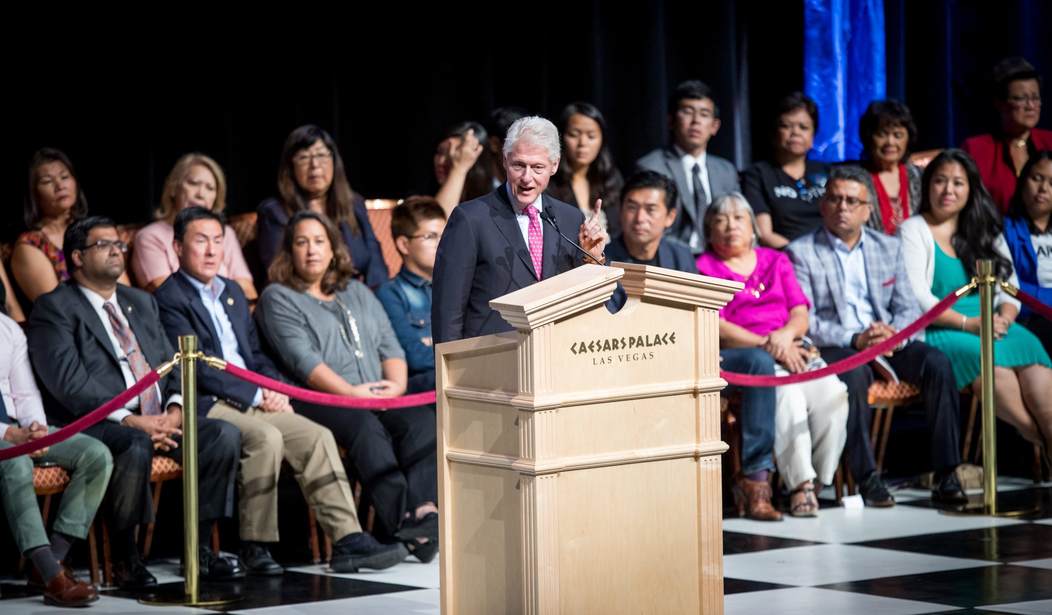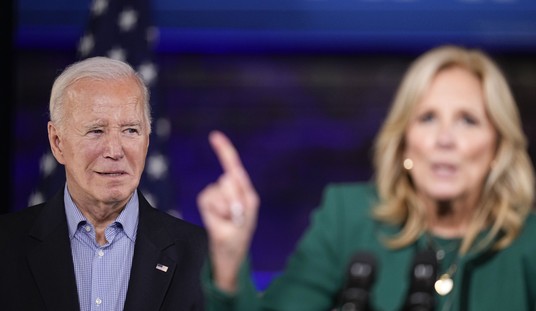WASHINGTON – Rep. Grace Meng (D-N.Y.) applauded Hillary Clinton’s campaign for their outreach to Asian Americans and Pacific Islanders (AAPI) community during the election cycle.
“I think her team has been doing an amazing job — and it’s not just something they’ve been doing the last few months — reaching out to the diverse population of the AAPI community. I know that Congress members who are either AAPI themselves or represent large communities, have also on their free time taken time to talk to voters across the country and even in some swing states and it’s somewhat of a concerted effort to make sure that everyone we know in our community who is eligible to register will register to vote and come out to vote,” Meng said on a conference call about the Labor Department’s latest Economic Status of Asian Americans and Pacific Islanders report.
“The AAPI community is one of the fastest-growing communities in the country so we are very thankful the Clinton campaign — she has a proven track record of diversity — but now is also reaching out to different parts of our community,” Meng added.
According to the report, with a 3.9 percent unemployment rate in 2015, “AAPIs had the lowest unemployment rate of any major racial or ethnic group, although substantial variation exists between AAPI subgroups.” The report noted that every AAPI subgroup has “lower unemployment rates than both Black Non-Hispanics (9.6 percent) and Hispanics (6.6 percent).”
The report also found that the poverty rate for the AAPI community was 12.3 percent in 2014, which was “still much lower than the Black Non-Hispanic (25.7 percent) and Hispanic (23.7 percent) measures, but closer to the White Non-Hispanic poverty level (10.7 percent).”
Meng said she was “struck” by the report finding that many AAPI subgroups had higher unemployment rates in 2014 compared to 2007.
“Looking at AAPI subgroups, Other Asians and Native Hawaiians and Other Pacific Islanders had the highest poverty rates in 2014 (19.2 and 16.7 percent, respectively). The Chinese, Korean, and Vietnamese communities had poverty levels above the AAPI average as well,” the report found.
“For those people the Great Recession is in effect still going on. By having the disaggregated data, we can better target and work with different communities based on the unique issues they face. For certain communities where the high school and college dropout rates are higher, we need to further examine the causes and make sure the community is getting the support it needs,” she said. “Without disaggregated data, it would be easy to gloss over some communities that are suffering because it hides what is really going on.”
According to the report, AAPI workers earn more than “White Non-Hispanic workers” overall. However, Meng pointed out that AAPI workers “earn less than White Non-Hispanic workers who have similar characteristics and do similar jobs.”
“It also not enough to simply put out this data. It is only through a deeper look at the numbers and a thoughtful analysis that we were able to see a problem that many other people may have overlooked,” Meng said.
Rep. Judy Chu (D-Calif.) said the major party presidential candidates, Clinton and GOP nominee Donald Trump, have to focus on the economy to win over more AAPI voters in the homestretch of the presidential election.
According to the Fall 2016 National Asian American Survey, Trump had a 67 percent unfavorability rating among all Asian groups – 84 percent with Korean Americans – while Clinton had 35 percent unfavorability, which spiked to 50 percent among Vietnamese Americans. Among registered Asian American voters surveyed, 14 percent said they were voting for Trump and 55 percent favored Clinton.
Chu, chairwoman of the Congressional Asian Pacific American Caucus, said the National Asian American Survey showed that the economy is the No. 1 issue of concern for Asian Americans. She pointed out that many members of the AAPI community are self-employed and will be paying attention to a candidate’s small business policies in particular.
According to the Department of Labor, “AAPIs are more likely to be self-employed (5.4 percent) than Black Non-Hispanic workers (3.5 percent), but less likely to be self-employed than White Non-Hispanic (7.0 percent) or Hispanic workers (6.4 percent).”
The report also found that the AAPI community as a group “had a labor force participation rate of 62.8 percent in 2015, placing them above White Non-Hispanics (62.2 percent) and Black Non-Hispanics (61.2 percent), but below Hispanics (65.9 percent).”
“What this labor report shows is that there are indeed many populations within the Asian community that are affected by the economy and they are still struggling to recover. When we dig deeper into the data we see that for instance Japanese, Koreans and Chinese Americans have the lowest labor workforce participation. We see higher unemployment rates amongst native Hawaiians,” Chu said. “The bottom line is that these presidential candidates need to focus on the economy.”









Join the conversation as a VIP Member